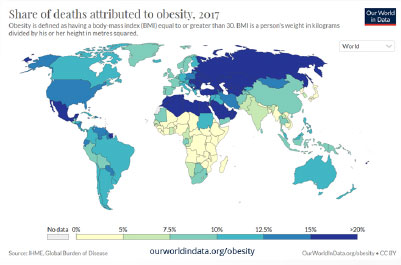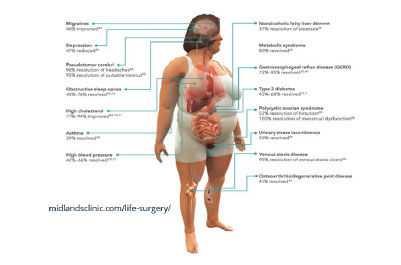
Obesity has recently overtaken smoking as the top global modifiable risk factor for chronic medical conditions. The World Health Organization estimates that over 2 Billion adults are obese, representing over 40% of the global population.

The contribution of obesity to the development of chronic medical conditions is significant, including up to 40% for diabetes and 30% for hypertension, two of the major risk factors for cardiovascular disease. Obesity is also a significant, if not primary, contributor, to a multitude of other conditions, such as malignancies, joint disorders, liver disease (non -alcoholic steatohepatitis, or NASH), chronic kidney disease, sleep apnea and depression.
Although obesity increases the risk of developing many of the most morbid chronic medical conditions, it is highly modifiable, and can be improved with targeted lifestyle interventions. Even modest reductions in overall weight and body mass index (BMI) can have an important impact on a patient's health, such as improved blood pressure, lower cholesterol and risk of cardiovascular disease, improved joint health and a significant reduction in cancer risk.
Improvement in even one unit of body mass index can lower the population burden of chronic medical conditions significantly. Marginal improvement in a patient's health can translate into tens of thousands of dollars in lifetime healthcare savings per patient.

Even modest reductions in overall weight and body mass index (BMI) can have an important impact on a patient's health.
Marginal improvement in a patient's health can translate into tens of thousands of dollars in lifetime healthcare savings per patient
The ideal way to drive meaningful weight loss, improve a patient's health and lower his or her risk factor profile, is by instituting a comprehensive and patient centered management program.
![]()
866-MEDIORB (866-633-4672)